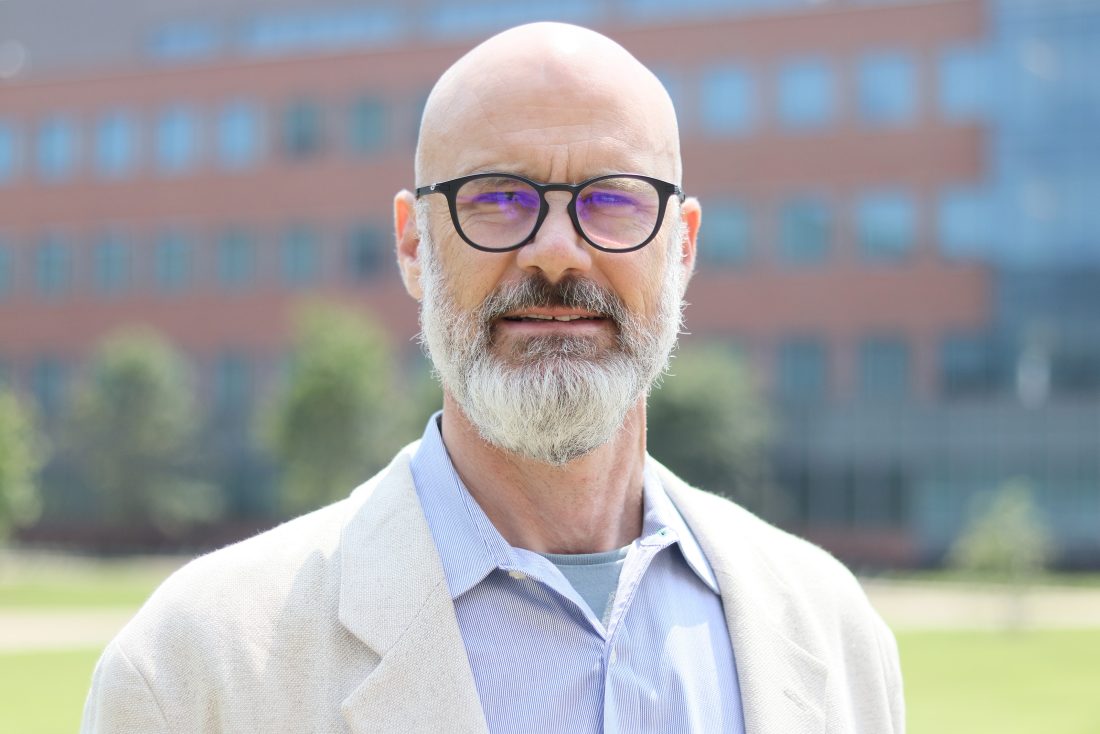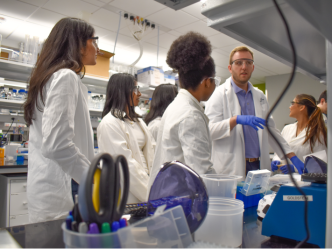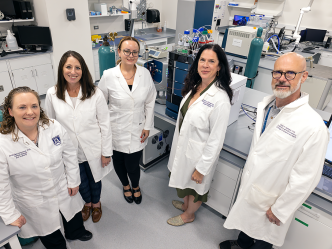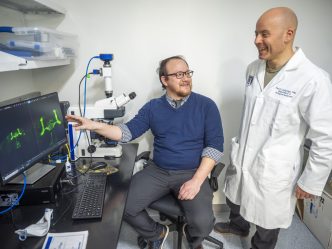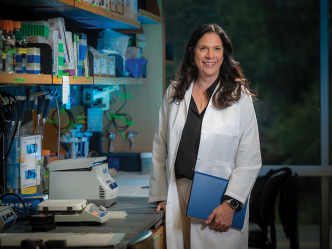Guido Verbeck, PhD, the new chair of the Department of Chemistry and Biochemistry in the College of Science and Mathematics, has been awarded a grant from the Bill & Melinda Gates Foundation for his research on improving disease detection.
The main emphasis is instrument development using mass spectrometry and spectroscopy, which are used to make devices that can detect illnesses non-invasively by detecting changes in breath chemistry.
His current proposal focuses on using mass spectrometry in association with the company InspectIR to identify biomarkers that are associated with tuberculosis and malaria. A similar method was used by Verbeck and InspectIR to develop the first FDA approved COVID-19 breath test, and he is trying to apply that principle with other diseases.
“My outcomes would be to create a non-invasive, portable analyzer for early detection of these disease states,” Verbeck said. “One that is ultimately affordable and rigged to put into any environment, even outdoors, if needed.”
Verbeck’s lab chose to focus on tuberculosis and malaria detection because they are among the greatest global health threats, but the research does not have to be limited to these two diseases. Other applications of this research could be used to detect different types of cancers, metabolic diseases and other respiratory illnesses, according to Verbeck.
These applications have the potential to extend to areas including air quality monitoring, drug detection, chemical weapon detection and geo-spatial chemical mapping. The breadth of impact from the Bill & Melinda Gates Foundation award also includes opportunities for students who will be working in Verbeck’s lab to engage in groundbreaking research.
“This award will fund both graduate and undergraduate research here at Augusta University,” Verbeck said. “The only way this and new technology can ever be developed is by training the next generation to carry the torch. The greatest reward is seeing students with real outcomes in research.”
 Augusta University
Augusta University
